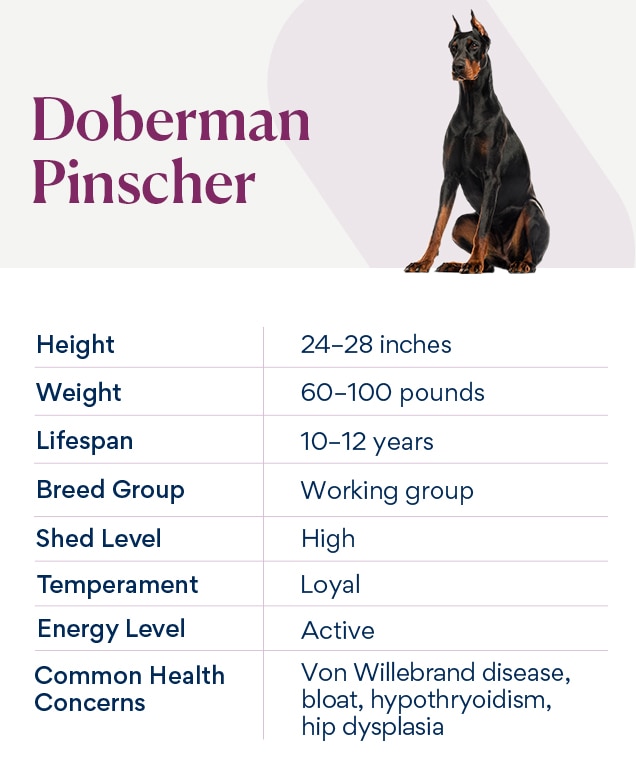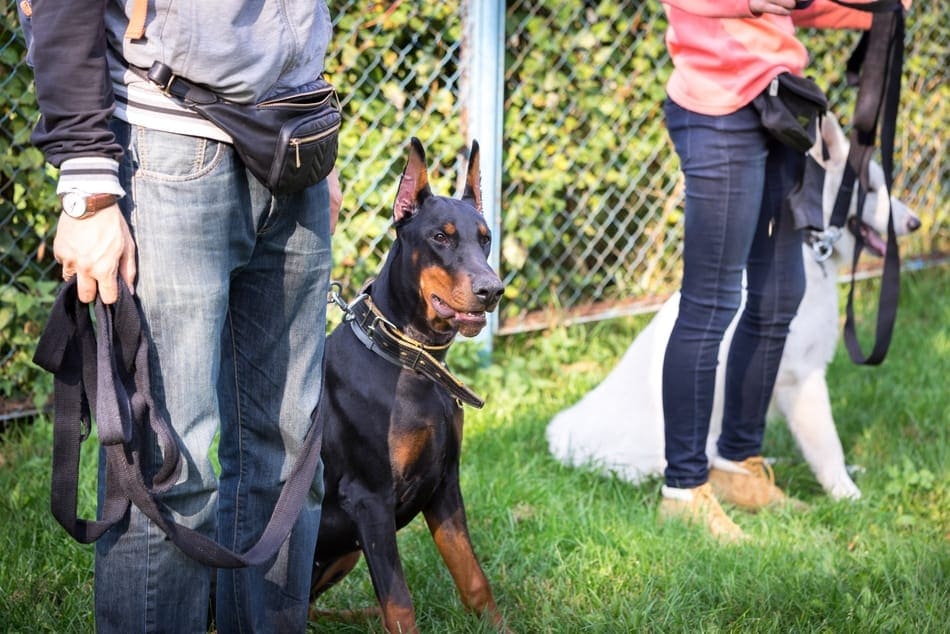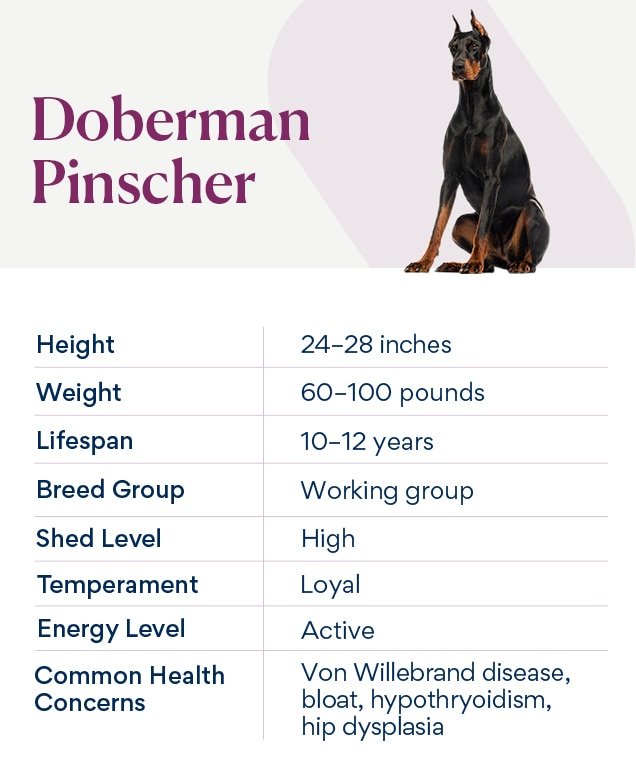When it comes to the behavior of Dobermans, there’s an intriguing aspect that sets them apart from other breeds. Did you know that despite their confident and assertive nature, Dobermans are actually quite sensitive and responsive to their owner’s emotions? This unique combination of strength and empathy makes them exceptional companions and protectors.
Understanding the behavior of Dobermans involves delving into their history. Originally bred in Germany by a tax collector named Louis Dobermann in the late 19th century, these dogs were carefully selected for their loyalty, intelligence, and protective instincts. Today, these qualities continue to make them one of the top choices for police and military work, as well as beloved family pets.
Doberman Pinschers are known for their alert and energetic nature. They are intelligent, loyal, and protective, making them excellent guard dogs. With proper training and socialization, a Doberman can be friendly and gentle. They are naturally confident and have a strong work ethic, making them great for tasks like search and rescue or police work. However, they can also be sensitive and require consistent training and positive reinforcement. Overall, Dobermans act with a sense of purpose, carrying themselves with a dignified and self-assured demeanor.

How Do Doberman Act?
Doberman Pinschers are known for their elegant appearance and protective nature. But how exactly do they act? Let’s explore the behavioral characteristics and tendencies of Dobermans to gain a better understanding of their temperament and behavior.
Intelligent and Energetic
Dobermans are highly intelligent dogs. They possess a sharp mind and are quick learners, making them highly trainable. They love to engage in mental and physical activities that challenge their intellect and energy levels. Without proper mental and physical stimulation, Dobermans may become bored and exhibit destructive behaviors. Regular exercise and mental stimulation are vital for their well-being.
Due to their high energy levels, Dobermans have a natural drive to explore, play, and work. They require regular exercise, such as long walks or runs, to burn off their pent-up energy. An active Doberman is a happy and well-behaved Doberman.
Loyal and Protective
Loyalty and protectiveness are among the defining characteristics of Dobermans. They form strong bonds with their families and will go to great lengths to protect them. Dobermans are naturally protective and possess excellent guarding instincts, making them an excellent choice for personal protection or guard dog training.
When properly trained and socialized from an early age, Dobermans can differentiate between genuine threats and harmless situations. They are alert and vigilant, always aware of their surroundings. With their families, they are loving and affectionate, dedicated to their well-being and safety.
Socialization and Aggression
Proper socialization is crucial for Dobermans to ensure they grow into well-rounded dogs. When exposed to a variety of people, animals, and situations in their early stages of development, Dobermans are less likely to develop fear or aggression towards unfamiliar circumstances.
Although Dobermans have a reputation for being aggressive, this is not their natural disposition. Aggression is usually a result of poor socialization, lack of training, or mistreatment by owners. With the right training, socialization, and responsible ownership, Dobermans can be gentle and well-behaved members of society.
Sensitivity and Affection
Beneath their strong and imposing exterior, Dobermans are sensitive and affectionate dogs. They thrive on love and attention from their owners and are eager to please. They often form incredibly strong bonds with their owners and become loyal companions for life.
Despite their sensitive nature, Dobermans can be wary of strangers. Early socialization can help them develop trust and be more accepting of unfamiliar people and situations. Positive reinforcement training methods work best with this breed, as they respond well to praise and rewards.
Working Dogs with a Purpose
Dobermans have a strong work ethic and excel in various tasks and activities. They were originally bred for personal protection, guarding, and serving as working dogs. Nowadays, they thrive in various roles, including search and rescue, competitive obedience, tracking, and therapy work. Their versatility and intelligence allow them to adapt to different tasks and excel in their performance.
Conclusion
Dobermans are intelligent, loyal, and protective dogs. With proper training, socialization, and care, they can be wonderful companions and family pets. It’s important to understand and meet their mental and physical needs to ensure their well-being and happiness.
Key Takeaways:
- Dobberman Pinschers are known for their loyalty and protective nature.
- They are intelligent and trainable, making them great working dogs.
- Proper socialization and training are important for their behavior.
- Dobbermans can be wary of strangers but can be friendly with familiar people.
- They require regular exercise and mental stimulation to prevent boredom and destructive behavior.
Frequently Asked Questions
Here are some commonly asked questions about how Dobermans act:
1. What is the temperament of a Doberman?
Dobermans are known for their loyal, intelligent, and energetic nature. They are highly trainable and make excellent guard dogs. However, they can also be sensitive, so it’s important to provide them with proper socialization and positive reinforcement training from an early age.
Additionally, Dobermans have a protective instinct, which means they may become wary of strangers. Proper socialization and early exposure to different people, places, and situations can help them develop a well-balanced temperament.
2. Are Dobermans good with children?
Dobermans can be great family dogs and are generally good with children. However, they have a strong protective instinct, so supervision is important when they are interacting with younger children. Early socialization and training can help them learn to be gentle and patient around kids.
It’s important to note that every dog is unique, so it’s crucial to introduce children and dogs in a controlled environment and teach kids how to interact appropriately with dogs to prevent any potential issues.
3. Are Dobermans aggressive?
Contrary to popular belief, Dobermans are not inherently aggressive. However, like any other breed, their behavior can be influenced by genetics, socialization, and training. Proper socialization and positive reinforcement training can help prevent potential aggression issues.
It’s important to choose a reputable breeder and spend time socializing and training your Doberman to ensure they grow up to be well-behaved and balanced individuals.
4. How do Dobermans behave around other animals?
Dobermans can coexist peacefully with other animals when properly introduced and socialized. Early exposure and positive experiences with different animals can help them develop good behavior around other pets.
However, it’s important to remember that Dobermans have a strong prey drive, so caution should be exercised when introducing them to smaller animals such as cats or small dogs. Supervision and gradual introductions are key to ensuring a harmonious relationship between Dobermans and other animals.
5. How much exercise do Dobermans need?
Dobermans are a high-energy breed that requires regular exercise to keep them physically and mentally stimulated. Ideally, they should have at least one to two hours of exercise every day, in the form of walks, runs, or playtime in a securely fenced yard.
However, it’s important to consider the individual needs of your Doberman, as some may require more exercise than others. Exercise not only helps keep them physically fit but also helps prevent behavioral issues that can arise from pent-up energy.

How to Raise a Doberman Puppy
Dobermans are known for their intelligence, loyalty, and protective nature. They are highly trainable and excel in various activities like obedience, agility, and protection work. With proper socialization and training, Dobermans can be friendly and gentle companions. However, they can also become aloof or reserved with strangers, making them excellent watchdogs.
Dobermans have a high energy level and require regular exercise to keep them mentally and physically stimulated. They are often described as being energetic, alert, and fearless. Despite their intimidating appearance, Dobermans can be affectionate and form strong bonds with their families. It’s important to provide them with consistent training, socialization, and leadership to ensure they grow up to be well-behaved and well-adjusted dogs.
